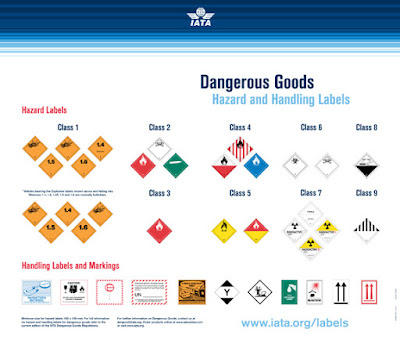Special attention should be given when live animals are
being transported through air. Loading unloading should be performed smoothly
in order not to startle the animals. Live animal shipments must not be left
unnecessarily in the open or onboard an aircraft when the departure is delayed.
Loading of animals should be done as late as possible to avoid exposure to
adverse conditions. For the well being of the animals, they must not be exposed
to high or low temperatures.
The regulations as laid down by IATA in the live animals’
regulations LAR should be consulted along with Airline specific Cargo Handling
Manuals. Whether presented live animals may be accepted depends upon:
1.Quantity and species
of animals involved.
2.Specific packing and
care giving requirements.
3.Government
regulations (customs, Health and hygiene control).
4.Carrier and government exceptions.
Animals should be transported in well constructed
containers, boxes and bags etc. Which are clean, leak proof, escape proof and
provided with holes for air additionally adequate litter should be provided for
excreta. It should be ascertained prior to transportation that the animals in
fact can be transported by all parties. Every airline has its own rule for
transporting AVI for example most airline have a rule that day old chick should
not be older than 48 hours at the moment of arrival the reason being that the
mortality rate will become too high because of growth of the chicks. Similarly
every country also has its own specific regulations with regards to export, transit,
import of live animals.
For More Details:
Mohammed Rafi
mohammedtrv01@gmail.com







